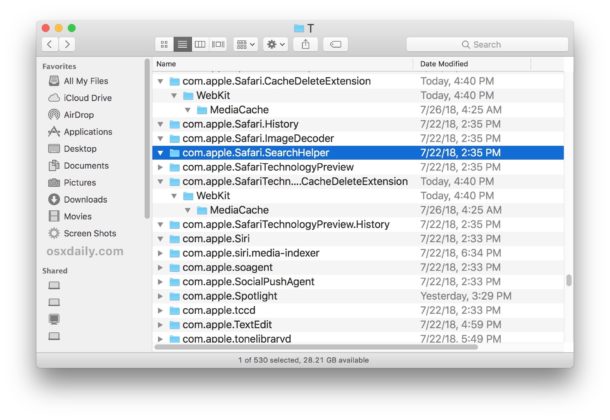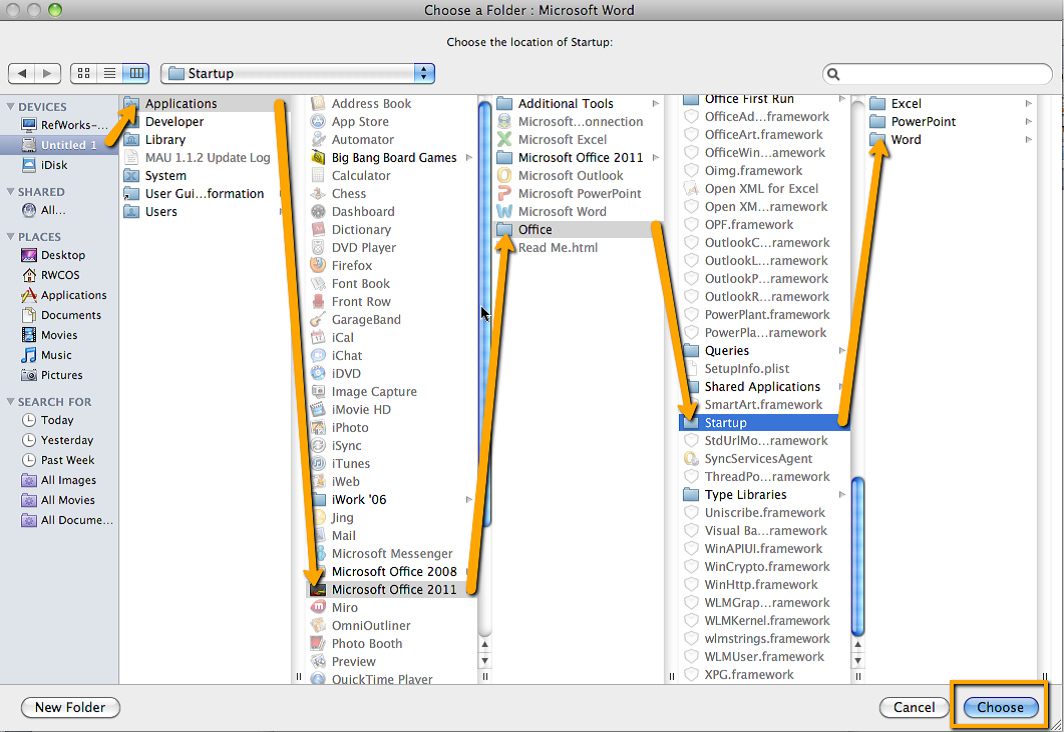Jan 18, 2017 Some staff wanted to understand how to point Word 2016 to a specific location in a SharePoint Online site to open or save files to from within Word 2016. Many of them were able to access the root (top/parent) site level of their SharePoint site, but could not navigate to. Note: Please don't delete the custom dictionary after importing it into your Word, you should keep the custom dictionary file in the folder. Easily set default custom dictionary Please apply the utility by clicking Kutools Plus Export / Import Custom Dictionaries to set one of the custom dictionaries as default custom dictionary. In Word 2016, the AutoRecovery folder is buried deep in the system and requires your Mac to display hidden files, so the first step is to reveal these secret folders, to do so we recommend following our advice at the link below, although the key combination to use is cmd + shift +. Well, there’s a custom dictionary file for every user account on your Mac, and were you so inclined, you could go in and add words, names, or anything else you were tired of being corrected on. OS X comes with a list of all the words in Webster's 2nd International Dictionary (234,936 of them to be precise). These words can be found in the file /usr/share/dict/words.I find it useful to search this list if I'm not sure how spell a given word by using the following command. Apr 14, 2014 Where is the Custom Dictionary for Microsoft Word Located? Akemi Iwaya @asianangel Updated April 14, 2014, 1:02am EDT Building up a solid custom dictionary in Microsoft Word takes a while as you add a handful of words at a time, but once you get it built up, it makes working on your documents a much more pleasant task. Step 2: On the destination computer, click File Options, select the Proofing and click the Custom Dictionaries (In Word 2007, click the Microsoft Office Button, and then click Word Options). Step 3: Click Add to import the custom dictionaries from intermediate location.
| Click here to return to the 'Take advantage of the built-in word list' hint |
- Citizen Dave
It's mostly the same as:
username% word [pattern]
where 'word' is an alias defined in /usr/share/init/tcsh/aliases.
/usr/bin/look will also work.
NAME
look - display lines beginning with a given string
SYNOPSIS
look [-df] [-t termchar] string [file]
/usr/bin/look will also work.
NAME
look - display lines beginning with a given string
SYNOPSIS
look [-df] [-t termchar] string [file]
Try using dict at the command prompt to get the same result - like this
ner % dict banil
No definitions found for 'banil', perhaps you mean:
web1913: Anil Bail Ganil Basil Banal
wn: anil bail basil banal
easton: Bani
You need: internet connection and a fink install. Bam!
Tony O
There are some seriously strange words in this file.
I used this file in one of those 'write a program to prove I can do it' moments. 'The Sydney Morning Herald' newspaper (of Sydney, Australia), publishes a puzzle everyday called 'Target'. It has a 3x3 grid with one letter per cell. The object is to find as many words as possible that are four or more letters long from those letters. Plurals and proper names are not allowed, of course. The other wrinkle is that all words must contain the letter that appears in the centre cell. You must also identify the nine-letter word that uses all the letters.
Clear enough? Anyway, I wrote a perl program to solve it for the benefit of my local baristas who used to leave the puzzle on their coffee cart for customers to help solve. Something to while away the hour on the train in the morning. The joys of a unix laptop ;-)
I discovered all these weird words in that dictionary because when the program ran, it was able to find at least 50% more words than the puzzle creators believed could be found, and some of them were very strange indeed.
I know this is barely on-topic. Sorry.
cheers
RET
It could also be useful if you want to copy a subset of photos between libraries, rather than merging all photos.However, as with PowerPhotos, you have to choose between original and edited photos, and you’ll need a lot of extra disk space. And if you export as JPEG, your photos may also suffer a slight quality drop as they’re recompressed.For those who want to use this approach,. https://omgapt.netlify.app/merge-iphoto-libraries-mac.html. The main thing it has going for it is that it’s free, and it will be faster than the iCloud Photos approach. Even worse, you’ll lose even more metadata, including albums, faces, and print projects.
OS X comes with a list of all the words in Webster's 2nd International
Dictionary (234,936 of them to be precise). These words can be found in
the file /usr/share/dict/words. I find it useful to search this list if
I'm not sure how spell a given word by using the following command:
% more /usr/share/dict/words | grep [pattern] | more
This should return a list of words from the dictionary that contain your
[pattern] (don't type the square brackets) of interest.
But -- what happens if you mispell, er, misspell?! Gentle OX X user, do
this:
fink install ispell
Then at yer shell prompt:
% ispell
which will greet you helpfully with:
@(#) International Ispell Version 3.2.06 08/01/01
word:
Entering 'mispell' at the 'word:' prompt returns:
how about: ispell, misspell
word:
(We can charitably forgive the program's mild hubris at taking its name
to be a word.)
ispell takes a filename as an argument, so if you want a quick single
line command, put the following in a file called, e.g., 'spellchk' in
/usr/local/bin:
#!/bin/sh
echo $1 | ispell
Be sure to 'chmod 755' it so it'll execute. Now, since in good unixy
fashion what 'echo' returns with a string as an argument is essentially
a file containing that string,
% spellchk mispell
from the command line will return the suggestions above.
Solicitously,
TXLogic
A text file containing over 466k English words.


While searching for a list of english words (for an auto-complete tutorial)I found: http://stackoverflow.com/questions/2213607/how-to-get-english-language-word-database which refers to http://www.infochimps.com/datasets/word-list-350000-simple-english-words-excel-readable (archived).
No idea why infochimps put the word list inside an excel (.xls) file.
I pulled out the words into a simple new-line-delimited text file.Which is more useful when building apps or importing into databases etc.
Library not found for mac. I had to leave this for a while but lately realized I had to update my operating system and solving this problem was critical to moving on.After some failures, I tried Goal Seek but could not get answers with adequate precision.
Copyright still belongs to them.
Word Dictionary Location
Files you may be interested in:
Word Dictionary File Location Mac Library Application
- words.txt contains all words.
- words_alpha.txt contains only [[:alpha:]] words (words that only have letters, no numbers or symbols). If you want a quick solution choose this.
- words_dictionary.json contains all the words from words_alpha.txt as json format.If you are using Python, you can easily load this file and use as a dictionary for faster performance. All the words are assigned with 1 in the dictionary.See read_english_dictionary.py for example usage.